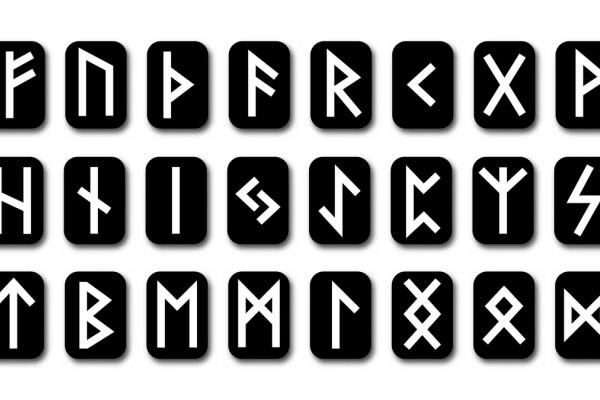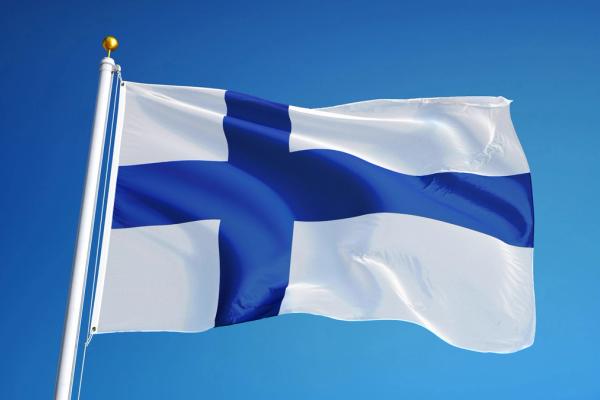
Icelandic Language: Similarities and Connections with English and Other Languages
Have you ever wondered what language Icelandic is similar to? Despite its unique and ancient roots, Icelandic actually shares many similarities with Old Norse and modern Scandinavian languages. In this article, we will explore the fascinating connections between Icelandic and its linguistic relatives, shedding light on the rich history and cultural significance of this enigmatic language. Whether you're a language enthusiast or simply curious about Icelandic, this exploration is sure to pique your interest.
What Language is Icelandic Based on?
Icelandic, an Indo-European language, is based on Old Norse, which later evolved into Old Icelandic and ultimately became Modern Icelandic. As a West Scandinavian language, Icelandic belongs to the North Germanic group of the Germanic languages.

What Language Is Icelandic Most Similar To?
The language closest to Icelandic today is Faroese, which isspoken in the Faroe Islands. Both languages come from Old Norse, and they’ve managed to hang on to a lot of the old grammar and vocabulary from the Viking Age. This makes Icelandic and Faroese much more alike than they are to other Scandinavian languages like Norwegian, Danish, or Swedish.
Just like Icelandic, Faroese has kept many of the complicated grammar rules that have disappeared in most other Nordic languages. For example, they both use grammatical cases, which Norwegian, Danish, and Swedish mostly dropped a long time ago. If you look at them written down, Icelandic and Faroese are close enough that people who speak one can often read the other with a bit of effort. The spoken forms can be trickier, though, since Faroese has some unique pronunciations and influences from Danish that set it apart.
While Icelandic shares some history with Norwegian and Danish, those languages have changed quite a bit over the years. Faroese, on the other hand, stayed more isolated, just like Icelandic, which helped them both stay closer to their Old Norse roots.
So, if you’re wondering what modern language is most similar to Icelandic, it’s definitely Faroese. They’ve both preserved that ancient Norse heritage, which makes them stand out from the rest of the Scandinavian languages.

Is Icelandic understandable to Norwegians?
Despite the similarities between Norwegian dialects and Icelandic, Norwegians cannot typically understand Icelandic. While Danes, Norwegians, and Swedes can communicate with each other in their respective languages with some effort, Icelandic and Faroese are not easily understood by these Scandinavian neighbors.
While Icelandic and Norwegian share many words and roots, particularly in common nouns, their differences in grammar and pronunciation reflect centuries of linguistic evolution.
Word Comparisons: Icelandic vs. Norwegian
Icelandic and Norwegian both come from Old Norse, so they share some similarities. However, after centuries of separate development, many words have changed.
1. Dog:
- Icelandic: Hundur
- Norwegian: Hund
Comparison: Both Icelandic and Norwegian use very similar words for "dog," reflecting their shared roots. The minor difference in Icelandic is the addition of "ur" at the end.
2. House:
- Icelandic: Hús
- Norwegian: Hus
Comparison: Both languages use "hús/hus" for "house," showing a close connection in basic vocabulary. The pronunciation is also very similar.
3. Child:
- Icelandic: Barn
- Norwegian: Barn
Comparison: This is an exact match, as "barn" is the same in both languages. This is a common word inherited from Old Norse, with no significant changes.
4. Water:
- Icelandic: Vatn
- Norwegian: Vann
Comparison: Here, the words are closely related but have different spellings and slight pronunciation differences. This is a typical example of how Icelandic has retained more of the older form of the word, while Norwegian has simplified it.
5. Window:
- Icelandic: Gluggi
- Norwegian: Vindu
Comparison: The difference between these words is notable, as they evolved from different roots. "Gluggi" is an older term that Icelandic retained, while Norwegian adopted "vindu" from the Low German "vindue."
Are Finnish and Icelandic similar?
While both Finnish and Icelandic are Nordic languages, they are actually quite different from each other. Icelandic has been isolated for a long time, leading to its unique characteristics, while Finnish is not even in the same language family. As a result, the two languages have seemingly no relations whatsoever, making them difficult for other Nordic language speakers to understand.
Word Comparisons: Icelandic vs. Finnish
Finnish is a Uralic language, not a Germanic one, so it’s entirely different from Icelandic. Here are some examples to show the stark contrast:
1. Dog:
- Icelandic: Hundur
- Finnish: Koira
Comparison: Unlike Norwegian, where "hund" and "hundur" are similar, Finnish has an entirely different word for dog, "koira," illustrating the distinct language families.
2. House:
- Icelandic: Hús
- Finnish: Talo
Comparison: Once again, Finnish and Icelandic diverge greatly here. While Icelandic and Norwegian share "hús" and "hus," Finnish’s "talo" has no resemblance, showing the linguistic divide.
3. Child:
- Icelandic: Barn
- Finnish: Lapsi
Comparison: "Barn" in Icelandic is quite different from the Finnish word "lapsi." There is no common root here because Finnish developed from the Uralic language family, which shares no ancestry with Indo-European languages like Icelandic.
4. Water:
- Icelandic: Vatn
- Finnish: Vesi
Comparison: While "vatn" and "vann" in Icelandic and Norwegian look similar, Finnish's "vesi" is entirely different, again emphasizing the unrelated nature of Finnish to Icelandic.
5. Window:
- Icelandic: Gluggi
- Finnish: Ikkuna
Comparison: "Ikkuna" in Finnish has no resemblance to the Icelandic "gluggi," showing how these languages have no common vocabulary due to their unrelated roots.

Is Icelandic Similar to Danish?
Icelandic and Danish both come from the same Old Norse roots, but they’ve taken pretty different paths over the years. Icelandic has stayed much closer to its ancient form, while Danish has evolved quite a bit. Icelandic still holds onto a lot of its original grammar and vocabulary, while Danish has simplified things, making the two languages less alike than you might think.
A big reason for this is Iceland’s isolation. Being out in the North Atlantic helped Icelandic keep its older form of the language, while Denmark’s proximity to countries like Germany influenced Danish quite a bit. Danish also picked up a lot of words from Low German, which is another reason it’s drifted further from Icelandic.
Word Comparisons: Icelandic vs. Danish
Icelandic and Danish share some words, but in general, they're very different.
1. Dog:
- Icelandic: Hundur
- Danish: Hund
Comparison: Icelandic adds "ur" at the end of "hundur," but otherwise, they’re pretty similar. That’s because both words come from the same Old Norse origin.
2. House:
- Icelandic: Hús
- Danish: Hus
Comparison: No surprises here—both languages use almost the exact same word for "house," with only a small difference in pronunciation.
3. Child:
- Icelandic: Barn
- Danish: Barn
Comparison: This one’s exactly the same in both languages. They both held onto this word from their Old Norse roots without making any changes.
4. Water:
- Icelandic: Vatn
- Danish: Vand
Comparison: You can see the connection here, though Danish simplified "vatn" to "vand." Icelandic keeps that older form.
5. Window:
- Icelandic: Gluggi
- Danish: Vindue
Comparison: Here’s where they really differ. Icelandic sticks with "gluggi," a word that’s been around for centuries. Danish, on the other hand, borrowed "vindue" from Low German, so it sounds quite different.
Is Icelandic Similar to Swedish?
Like Danish, Swedish comes from Old Norse, but it’s also changed quite a bit over the years. Swedish has modernized its grammar and pronunciation, while Icelandic has kept its older forms. Because of these changes, Swedish is much easier for other Scandinavians to understand than Icelandic is.
One big difference is that Swedish, like Danish, has gotten rid of some of the more complicated grammar rules that Icelandic still uses. So even though they share the same roots, Swedish and Icelandic feel pretty different when you compare them side by side.
Word Comparisons: Icelandic vs. Swedish
As with Danish, some words are the same or very similar, but others differ a lot.
1. Dog:
- Icelandic: Hundur
- Swedish: Hund
Comparison: Just like with Danish, Swedish uses "hund" for dog, and it’s almost the same as Icelandic’s "hundur." They dropped the "ur" over time, but the connection is clear.
2. House:
- Icelandic: Hús
- Swedish: Hus
Comparison: Both languages still use "hús/hus" for "house". The spelling is identical, but the pronunciation may differ a bit.
3. Child:
- Icelandic: Barn
- Swedish: Barn
Comparison: Same as in Icelandic and Danish, Swedish sticks with "barn" for "child", showing how some core vocabulary hasn’t changed much.
4. Water:
- Icelandic: Vatn
- Swedish: Vatten
Comparison: Swedish made a small change by adding an extra "t," but it’s still close to Icelandic’s "vatn," which hasn’t really changed since Old Norse.
5. Window:
- Icelandic: Gluggi
- Swedish: Fönster
Comparison: Swedish borrowed "fönster" from German, just like Danish. Icelandic’s "gluggi" is totally different because it’s an older, native word that hasn’t been influenced by foreign languages.
Is Icelandic Similar to English?
Icelandic and English both come from the Germanic language family, but they’ve grown in very different directions. While English has changed dramatically over the centuries—simplifying its grammar and borrowing a lot of words from French, Latin, and other languages—Icelandic has held onto its Old Norse roots. In fact, modern Icelandic is so close to Old Norse that Icelanders can still read ancient texts like the Sagas with little difficulty.
English, on the other hand, has become a global language with heavy influences from all over the world, especially after the Norman Conquest, which brought a lot of French vocabulary into English. This makes English a lot more flexible and varied but also much more distant from its original Germanic form compared to Icelandic.
Word Comparisons: Icelandic vs. English
Icelandic and English share some surprising similarities, especially with basic words like "house" (hús) and "water" (vatn). But English has changed a lot more, borrowing heavily from other languages and simplifying its grammar.
Funny enough, the most common way of saying "please" in Iceland is just using the English word.
1. Dog:
- Icelandic: Hundur
- English: Dog
Comparison: English took a different route here. The word "hundur" in Icelandic is much closer to the old Germanic "hound," which is still used in English but mostly refers to certain types of dogs. "Dog" is actually of uncertain origin, showing how English has replaced older Germanic words over time.
2. House:
- Icelandic: Hús
- English: House
Comparison: Here’s a good example of how Icelandic and English are still similar. Both languages use almost the exact same word for "house," though Icelandic keeps the spelling "hús" closer to its Old Norse origins.
3. Child:
- Icelandic: Barn
- English: Child
Comparison: This is where the languages start to drift. While Icelandic uses "barn" for child, English went with "child," a word with its own Germanic roots. Interestingly, "barn" still survives in English as "bairn," a word used in parts of Scotland and northern England, but it’s much less common.
4. Water:
- Icelandic: Vatn
- English: Water
Comparison: You can see the connection here, but they’ve evolved differently. "Vatn" is the older form, while "water" changed in spelling and pronunciation over time. Both come from the same ancient Germanic root.
5. Window:
- Icelandic: Gluggi
- English: Window
Comparison: These words look nothing alike. Icelandic sticks with "gluggi," a word from Old Norse, while English uses "window," which comes from the Old Norse "vindauga" (meaning "wind-eye"). So, even though they look different, "window" actually has Norse origins, showing a hidden connection between the two languages.
Is Icelandic Similar to German?
Icelandic and German both come from the same big Germanic language family, but they’ve grown apart quite a bit over the years. German is part of the West Germanic branch, while Icelandic comes from the North Germanic branch, specifically Old Norse. Over time, German has been influenced by languages like Latin and French, while Icelandic has stayed pretty close to its Viking roots. Icelandic still holds onto a lot of old grammar rules, like using four cases, which have mostly disappeared from modern German.
While they share some of the same roots, German has evolved into a more simplified and modern language, much like English. Icelandic, on the other hand, is kind of a time capsule, keeping a lot of its medieval structure and vocabulary.
Word Comparisons: Icelandic vs. German
1. Dog:
- Icelandic: Hundur
- German: Hund
Comparison: The words are really similar here, thanks to their shared Germanic origins. Icelandic adds an "ur" at the end, which is a leftover from Old Norse, while German sticks to the more basic "hund."
2. House:
- Icelandic: Hús
- German: Haus
Comparison: These are almost identical, just with a tiny difference in spelling and pronunciation. Both come from the same ancient Germanic word, showing that some basic words haven’t changed much at all.
3. Child:
- Icelandic: Barn
- German: Kind
Comparison: Here’s where the languages start to diverge. Icelandic uses "barn," which is similar to other Scandinavian languages, while German went with "kind." Both words go back to their Germanic roots, but they’ve evolved in different ways.
4. Water:
- Icelandic: Vatn
- German: Wasser
Comparison: You can still see the connection between these words, even though they look different. German turned "vatn" into "wasser," while Icelandic kept the older form. They both come from the same source, though.
5. Window:
- Icelandic: Gluggi
- German: Fenster
Comparison: This is where things really split. Icelandic’s "gluggi" is an old Norse word, while German’s "fenster" actually comes from Latin. German picked up the word through its interactions with the Romans, while Icelandic stuck with its native vocabulary.
Uncovering the Linguistic Links
Language is a fascinating and complex system that connects people across the globe. Through the study of linguistics, we can uncover the intricate web of connections between different languages and cultures. By analyzing the similarities and differences in grammar, vocabulary, and pronunciation, linguists can trace the historical and geographical links that bind languages together.
One of the most intriguing aspects of linguistic links is the way in which they reveal the shared heritage of diverse societies. For example, the Indo-European language family spans from Europe to parts of Asia, demonstrating the historical connections between languages such as English, Spanish, and Hindi. By uncovering these linguistic links, we gain a deeper understanding of the relationships between different cultures and the ways in which language has evolved over time.
Ultimately, the study of linguistic links allows us to appreciate the rich tapestry of human communication. Whether it's through the exploration of ancient roots or the examination of modern dialects, linguistics helps us to recognize the interconnectedness of the world's languages. By shedding light on the linguistic links that bind us together, we can foster greater understanding and empathy across diverse communities.
In Conclusion
Icelandic is a unique and fascinating language that shares roots with Old Norse and has evolved into its own distinct form. While it may have some similarities to other Scandinavian languages, such as Norwegian and Faroese, its grammar and vocabulary set it apart as a truly singular language. Whether you are interested in linguistics, travel, or simply expanding your knowledge, delving into the world of Icelandic can be a rewarding and enriching experience.
